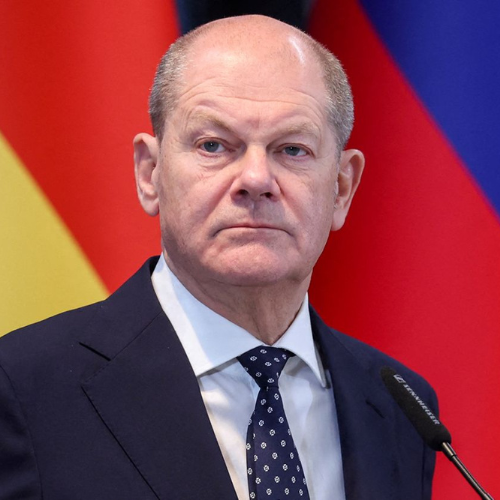German Chancellor Olaf Scholz has expressed his disappointment with the recent G20 summit’s final declaration, criticizing its lack of clear language about Russia’s responsibility for the ongoing war in Ukraine. The Chancellor also raised concerns about the statement’s vagueness on the conflict in the Middle East, showing frustration at the inability of the world’s leading economies to reach a stronger consensus on these pressing global issues.
Russia’s War Against Ukraine: G20’s Silence on Responsibility
The war in Ukraine, now stretching over 1,000 days, has brought devastating consequences to the country and its people. Speaking at the G20 summit in Rio de Janeiro on November 19, Scholz pointed out the tragedy of the conflict. He described it as an act of “blind megalomania” by Russian President Vladimir Putin, who seeks to expand his country’s territory by force.
Scholz said it was disappointing that the G20 declaration avoided clearly naming Russia as the aggressor in the war. He expected stronger wording that would leave no doubt about Moscow’s responsibility for the violence and suffering. Instead, the document used softer language that didn’t hold Russia directly accountable.
For Scholz, the lack of clarity in the declaration sends the wrong message to the international community. The war has already caused immense suffering, displacement, and loss of life, and Scholz emphasized the need for global unity in condemning Russia’s actions. However, divisions among the G20 members made it difficult to agree on stronger language, reflecting the deep geopolitical tensions in the group.
No TAURUS Missiles for Ukraine, Says Scholz
During the summit, Scholz also reiterated Germany’s decision not to supply Ukraine with TAURUS long-range cruise missiles. These missiles could reach far behind Russian lines, potentially giving Ukraine a significant advantage in defending itself. However, Scholz explained that such a move would be too risky for Germany.
G20’s Crucial Showdown: Gaza Conflict Sparks Global Tensions
If Germany provided these missiles, it might have to take on responsibility for overseeing their use to ensure they hit only military targets. This could lead to deeper German involvement in the war, something Scholz firmly opposes. He stated, “That would be a level of involvement that I don’t think is right.” While Germany has supported Ukraine in other ways, such as sending weapons and humanitarian aid, Scholz made it clear that supplying TAURUS missiles would cross a line.
Middle East: A Divided Declaration on Gaza Conflict
The G20 declaration also touched on the ongoing conflict in the Middle East, specifically the war between Hamas and Israel. While the summit called for a ceasefire in Gaza and Lebanon, Scholz found the wording of the declaration disappointing. He said it failed to clearly mention Israel’s right to defend itself against attacks.
Scholz highlighted the importance of recognizing the events of October 7, 2023, when the Islamist group Hamas carried out a deadly assault on Israel. However, the final G20 statement avoided addressing this attack or condemning Hamas. This omission, according to Scholz, weakened the message of the declaration and failed to fully acknowledge the complexities of the conflict.
The German Chancellor supported the call for peace in the region but felt the declaration could have done more to present a balanced perspective. Much like the section on Ukraine, the Middle East statement showed how difficult it is for the G20 to reach agreement on politically sensitive issues. Different priorities and alliances among member countries made it hard to adopt stronger wording.
Scholz on Geopolitical Tensions Within G20
Reflecting on the summit, Scholz remarked that the G20 is becoming increasingly affected by global political tensions. The group, which brings together the world’s largest economies, is meant to focus on economic cooperation and solving global problems. However, disagreements over conflicts like the war in Ukraine and the Middle East reveal deep divides between member countries. Scholz described this as a sign of the “sharper winds” blowing through international relations today.
The Chancellor’s criticism of the G20’s vague language shows his frustration at the inability to take a firmer stand against aggression and violence. For Scholz, clear and decisive communication is essential in addressing global crises. Without it, he fears the international community may fail to hold aggressors accountable or support those in need of help.


